Spelling practice Normal Worksheets for Ages 5-9 - Page 3
102 filtered results
-
From - To
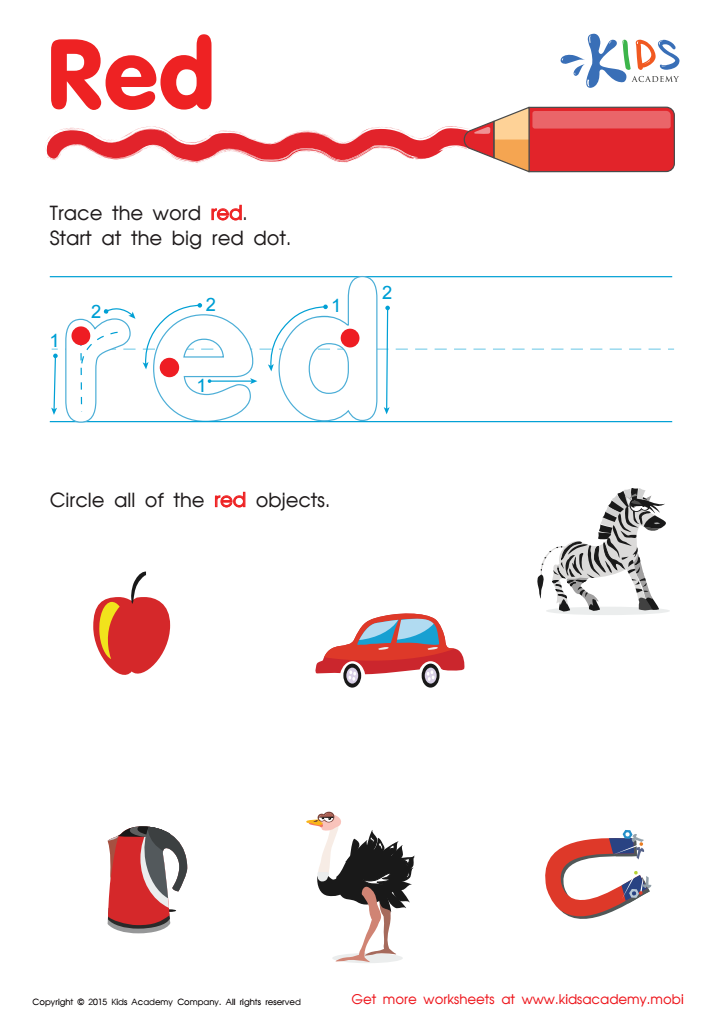

Red Tracing Color Words Printable
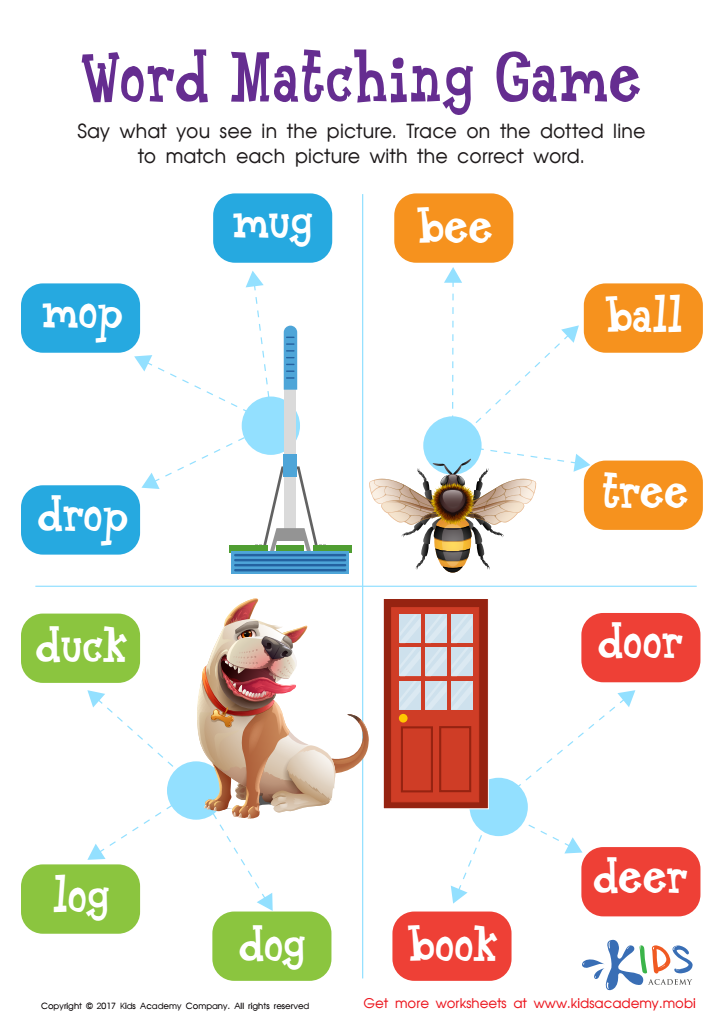

Word Matching Game Worksheet
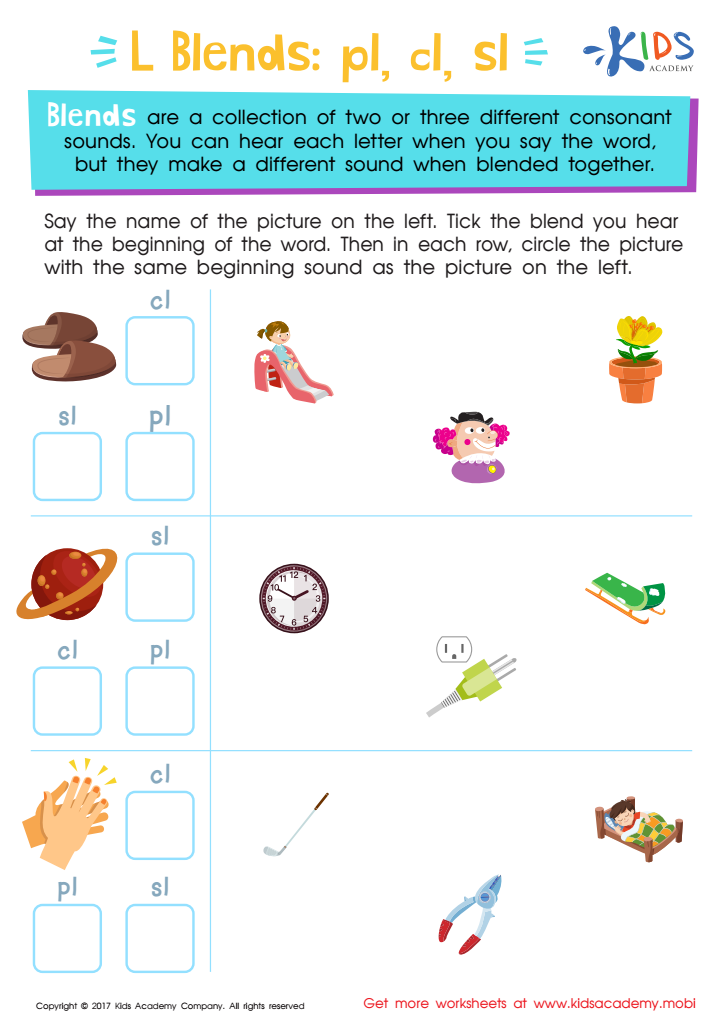

L Blends: "Pl", "Cl" and "Sl" Printable
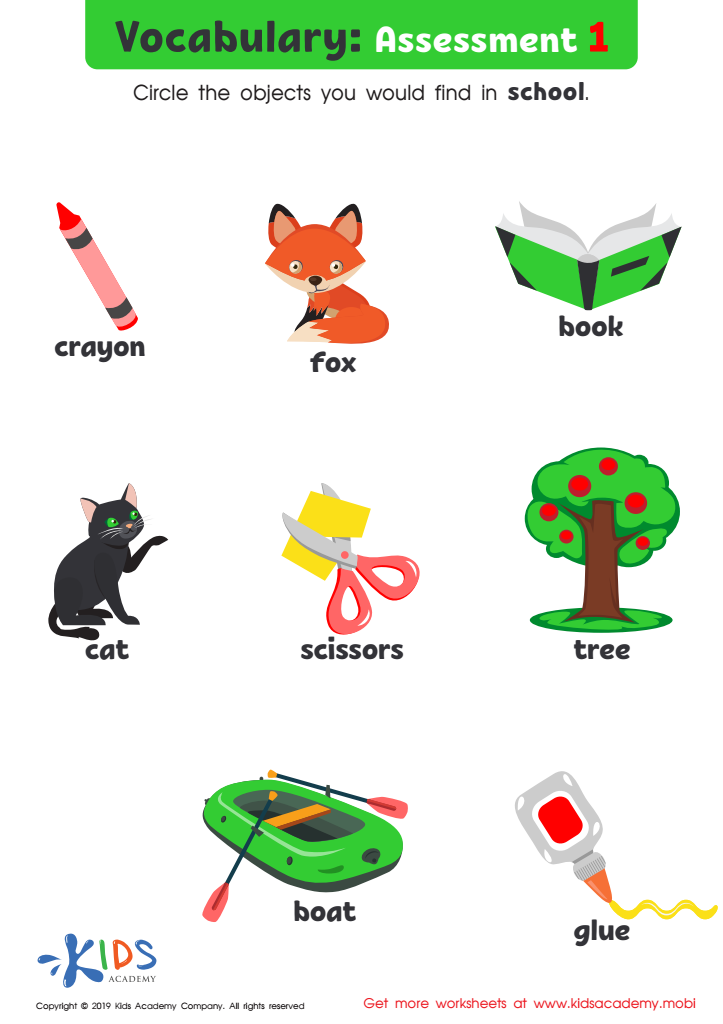

Vocabulary: Assessment 1 Worksheet
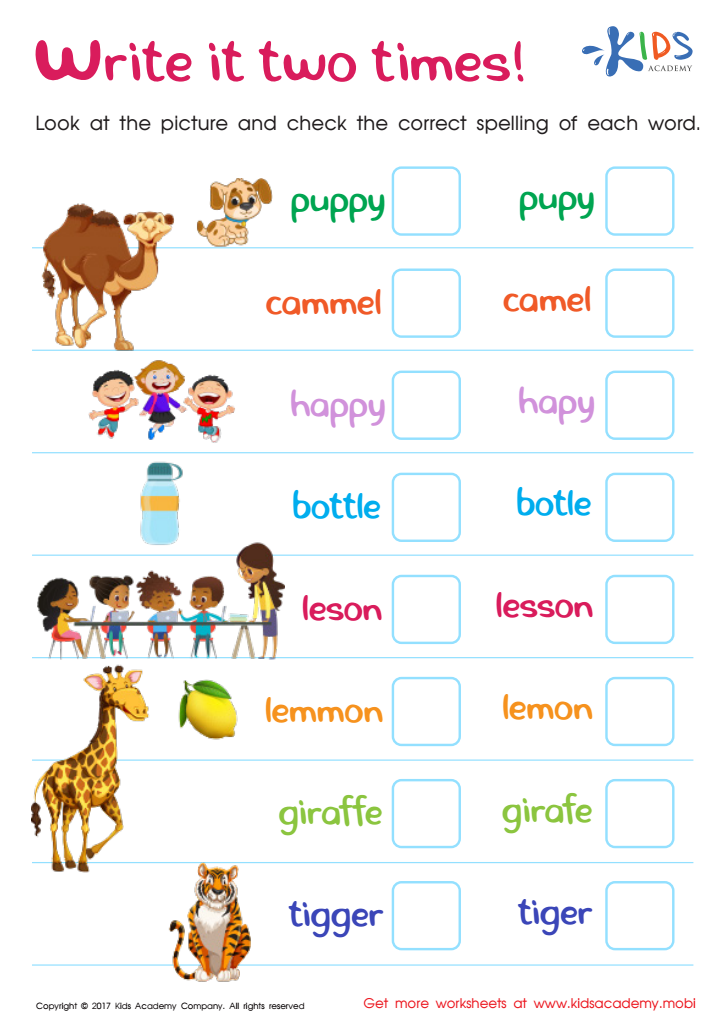

Spelling Practice Worksheet


Short Vowel Eggs Worksheet
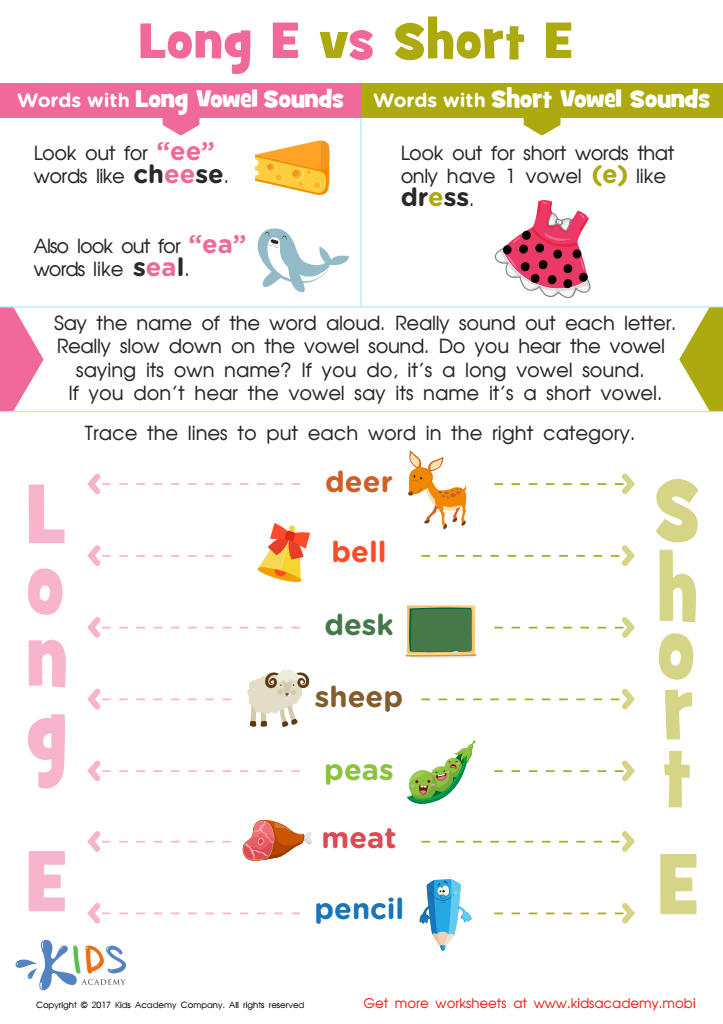

Long and Short Vowel E Spelling Worksheet
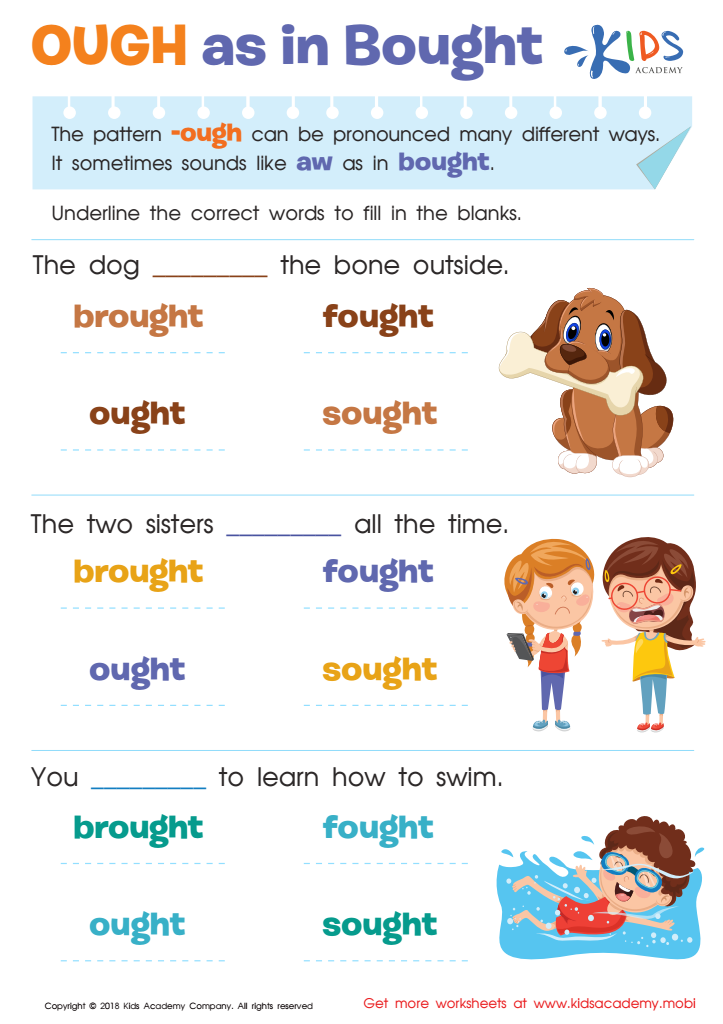

OUGH as in Bought Worksheet
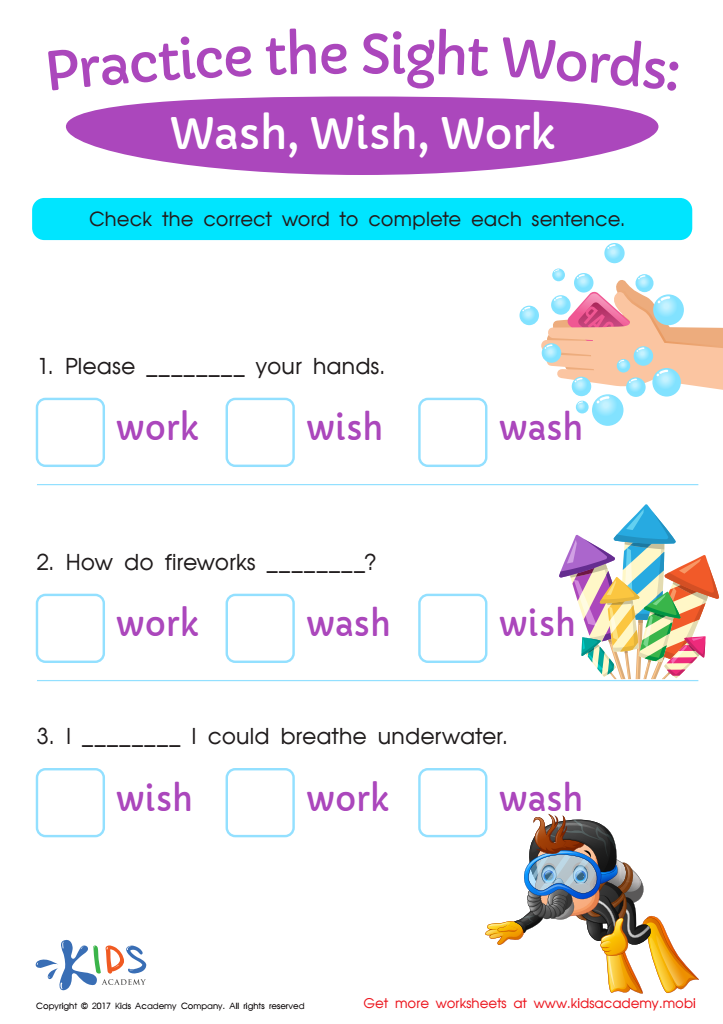

Wash, Wish, Work Sight Words Worksheet
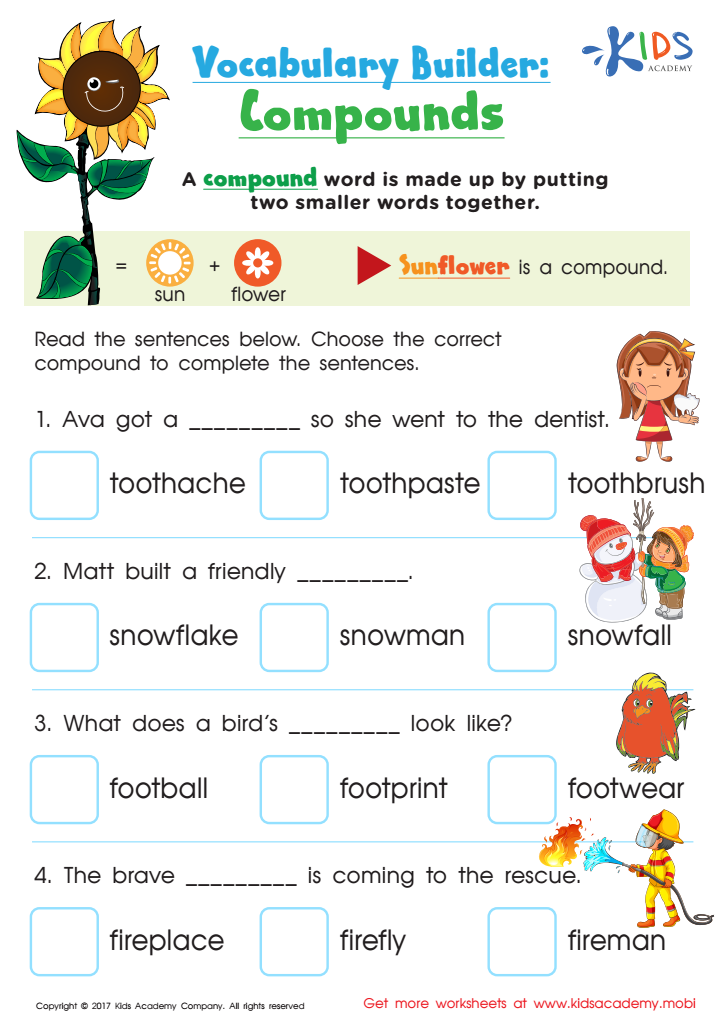

Compound Words Worksheet
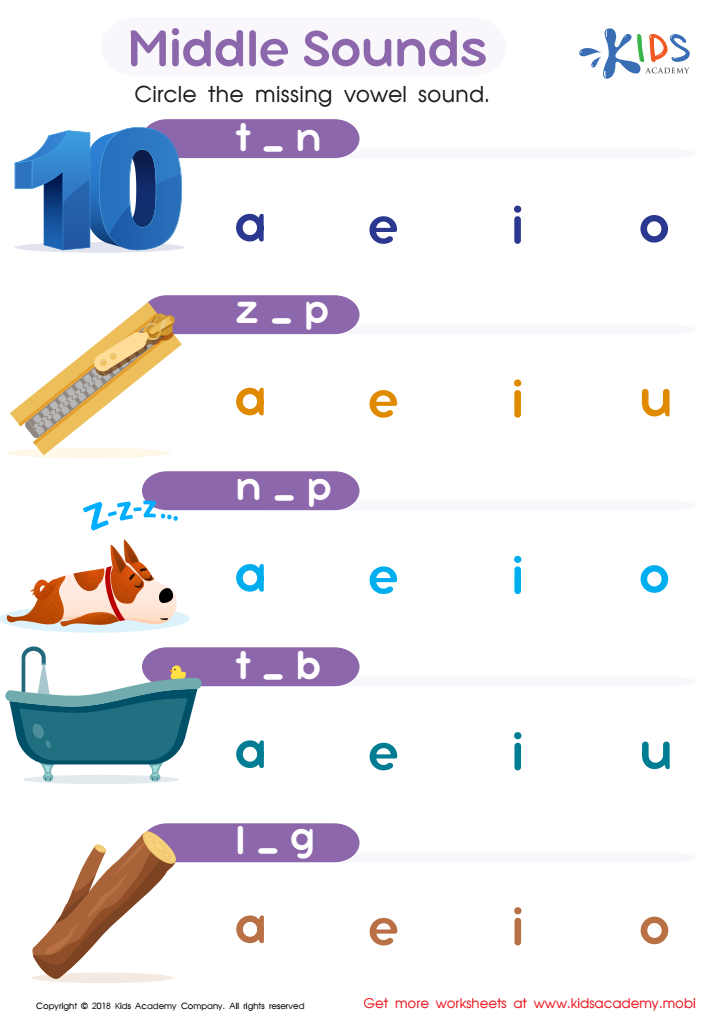

Middle Sounds Worksheet
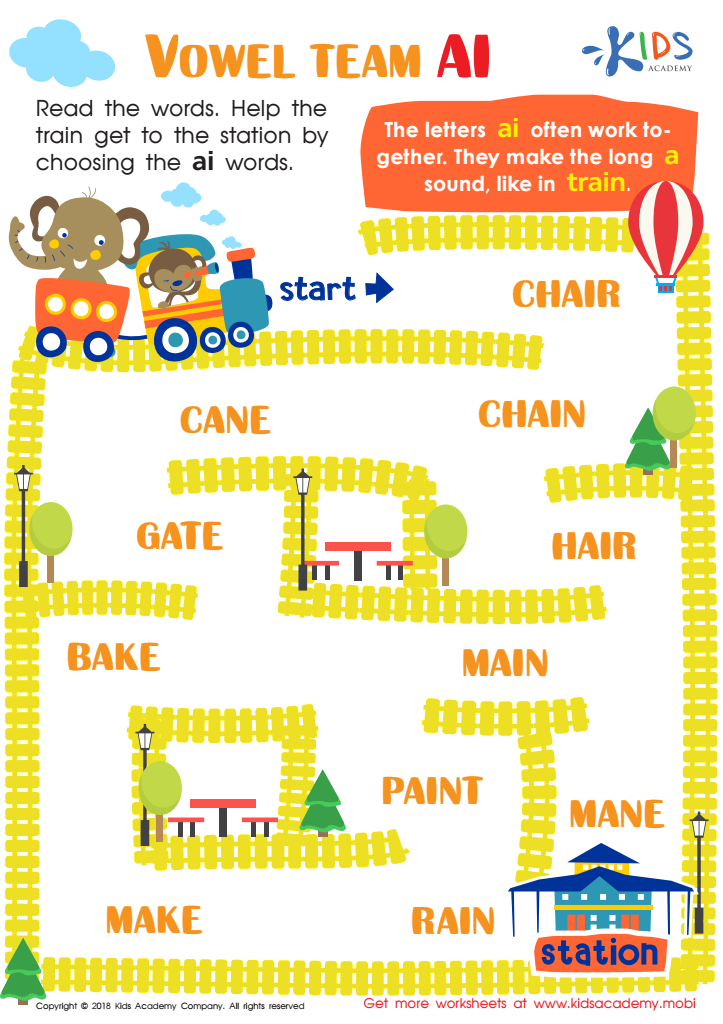

Vowel team ai Worksheet
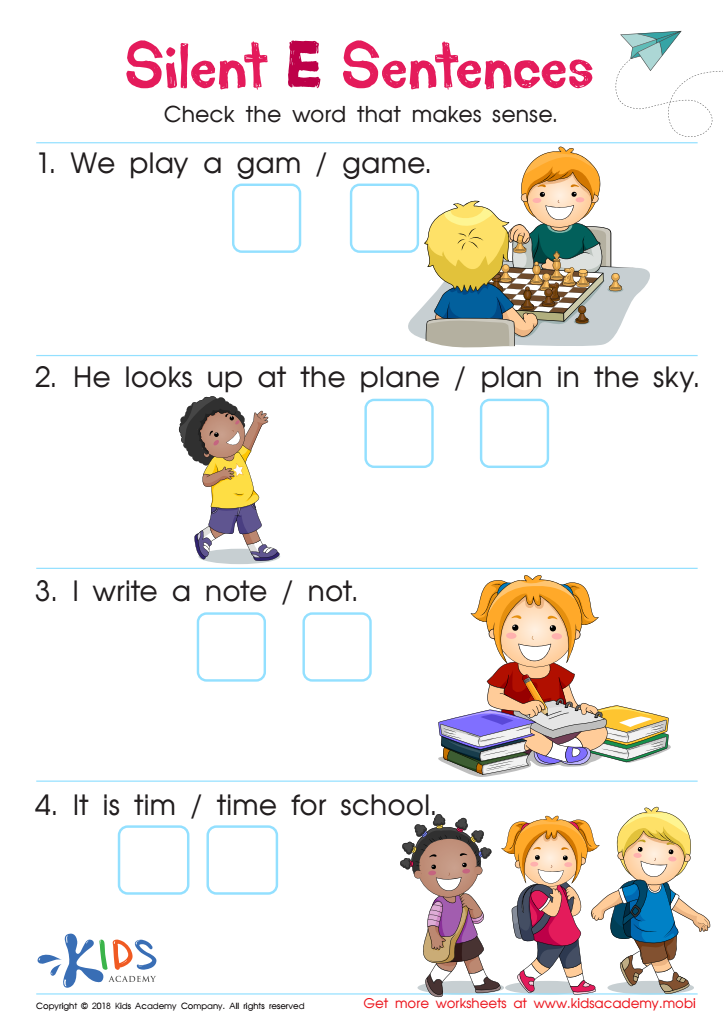

Silent E Sentences Worksheet
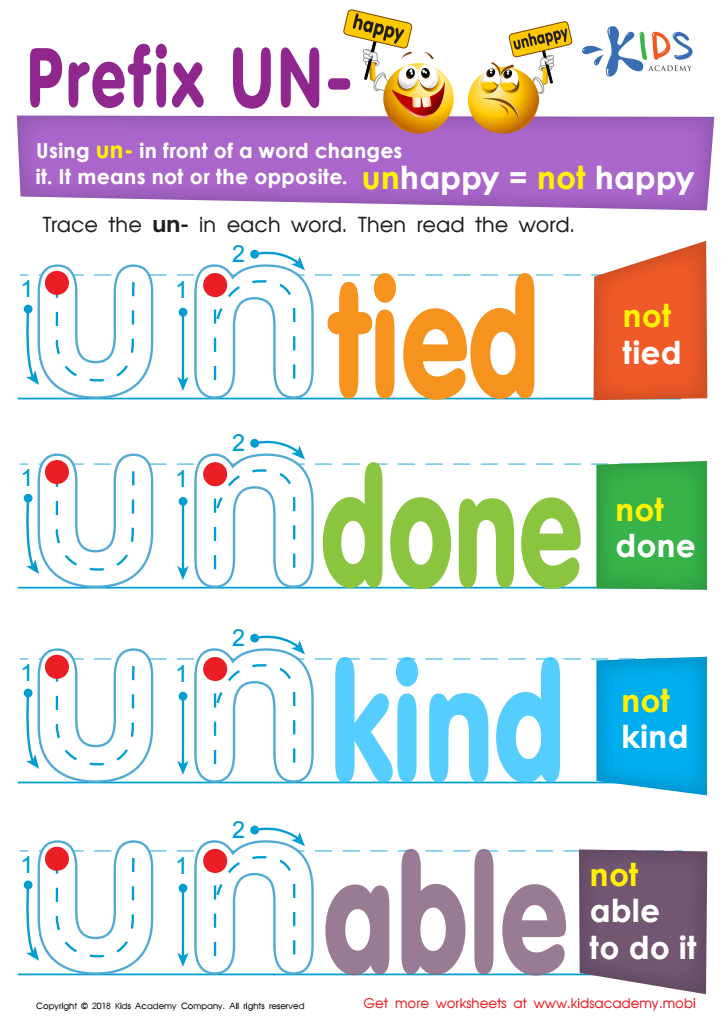

Prefix Un- Worksheet
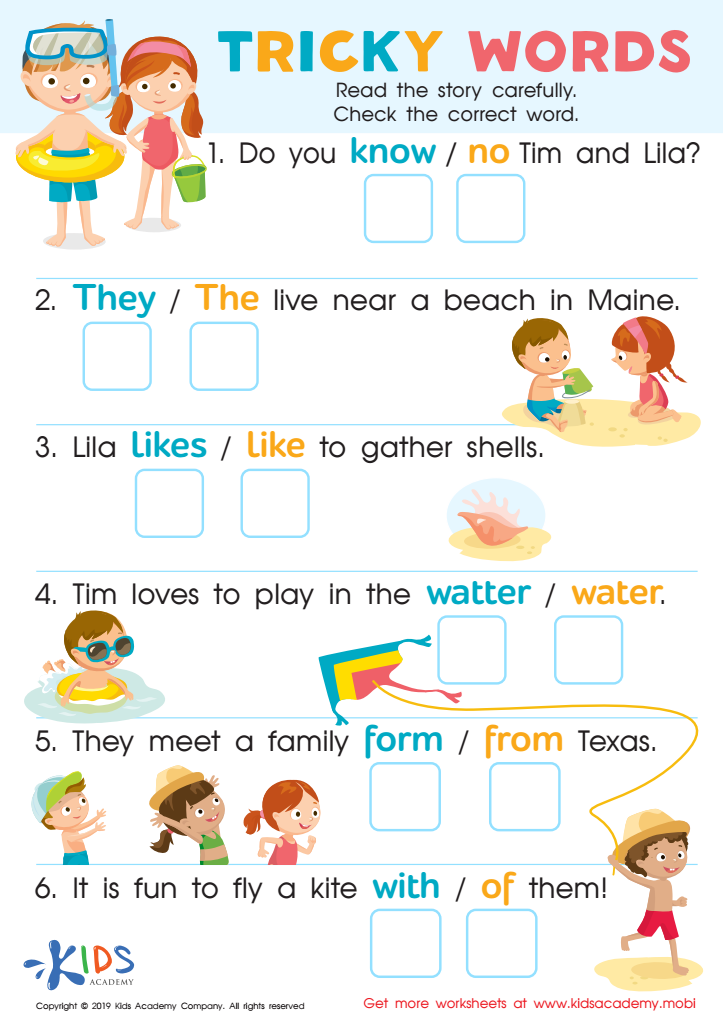

Tricky Words Worksheet
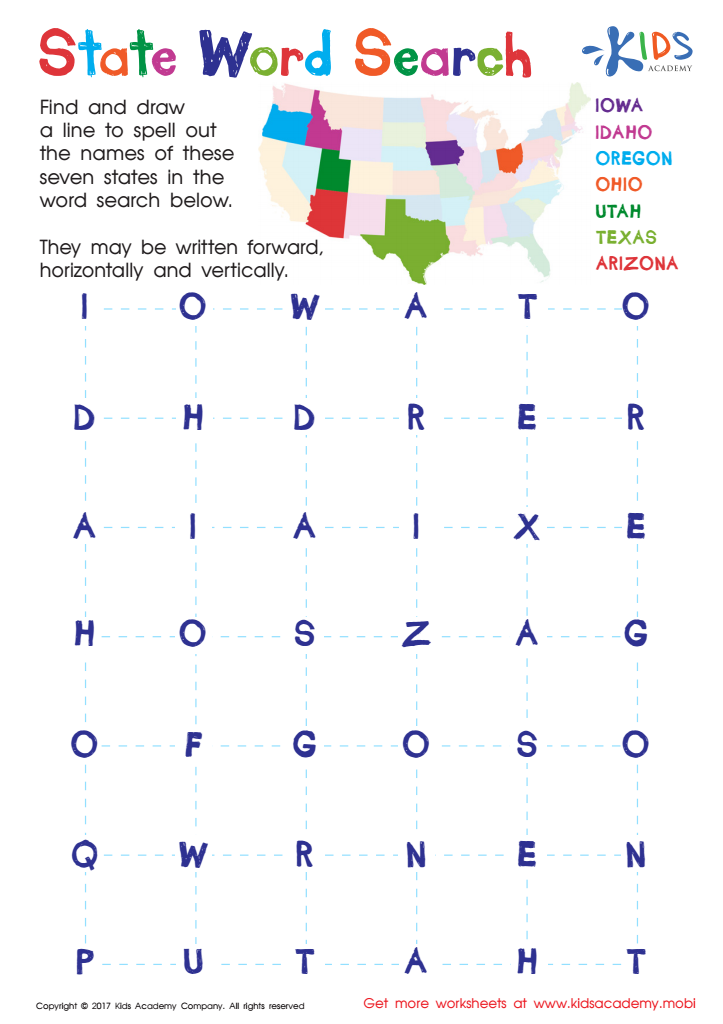

State Word Search Worksheet
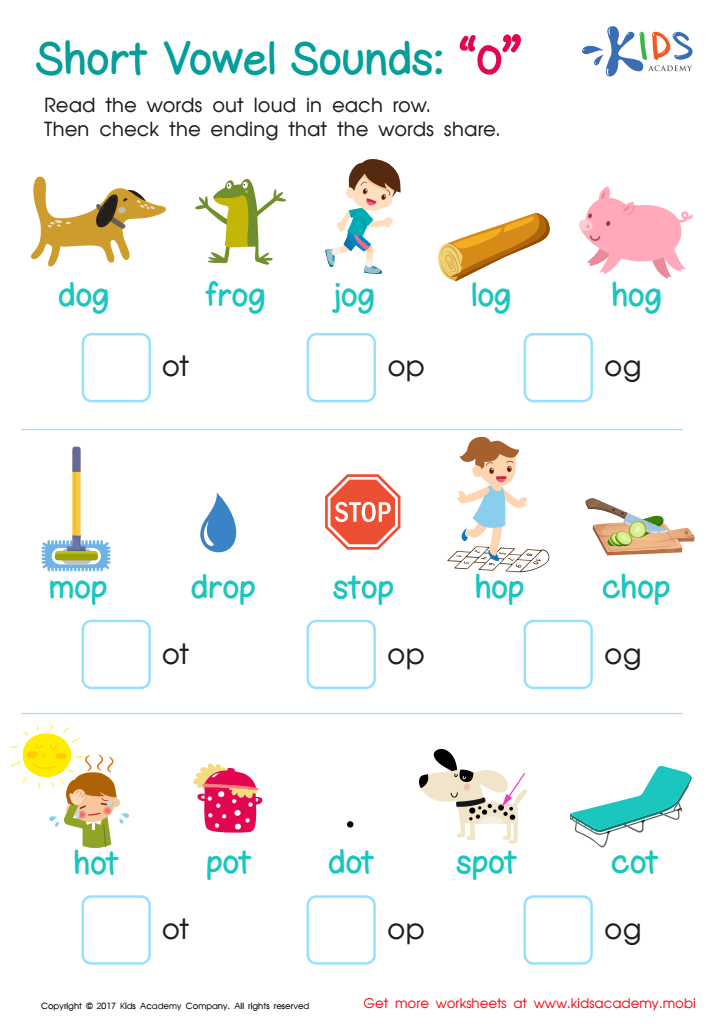

Short vowel Sounds "o" Spelling Worksheet
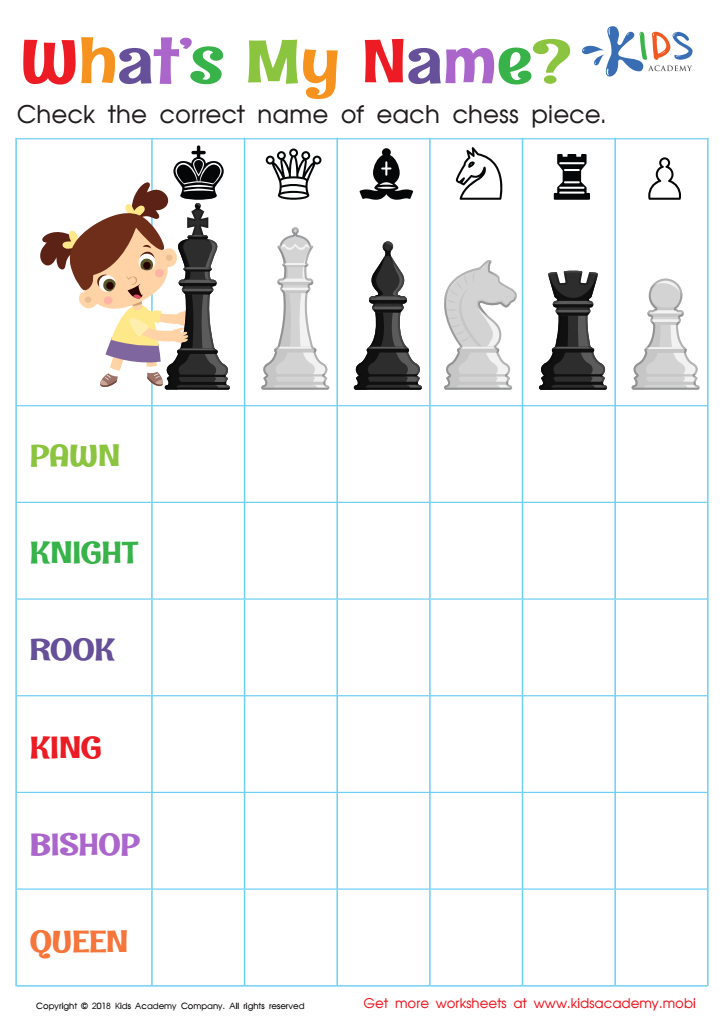

What's My Name? Worksheet
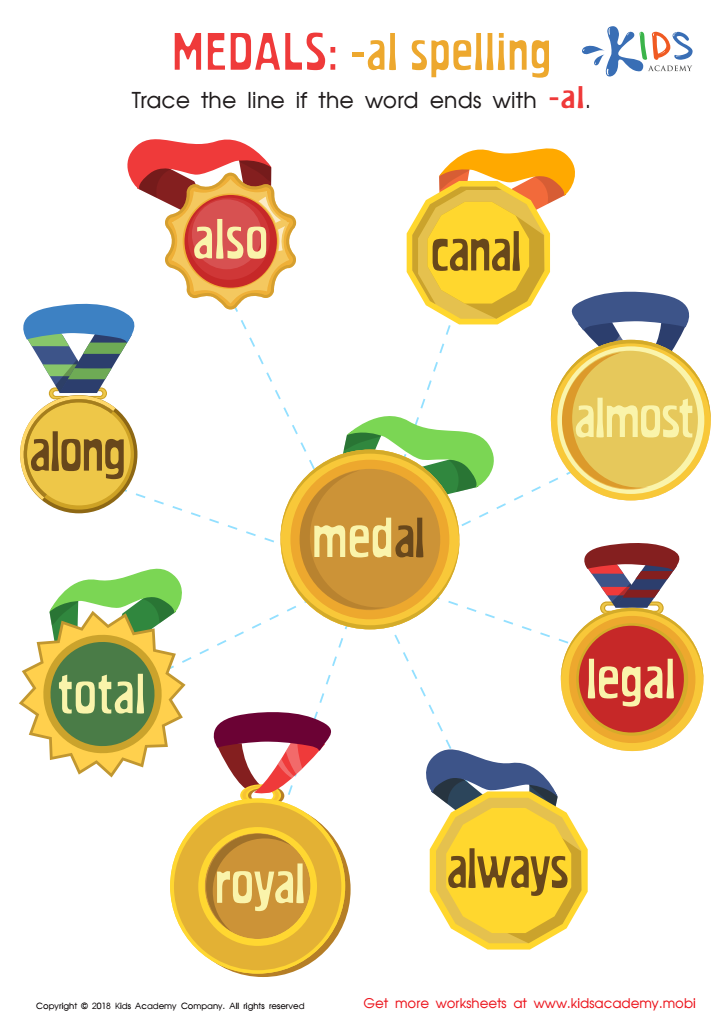

Medals: Al Spelling Worksheet
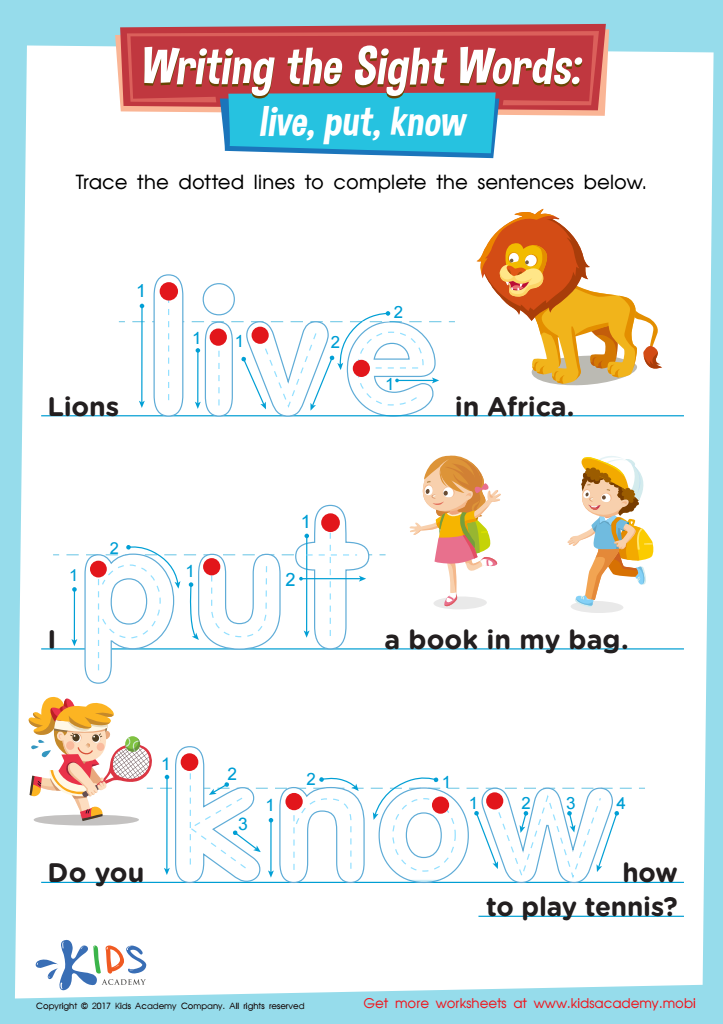

Live, Put, Know Printable Sight Words Worksheet
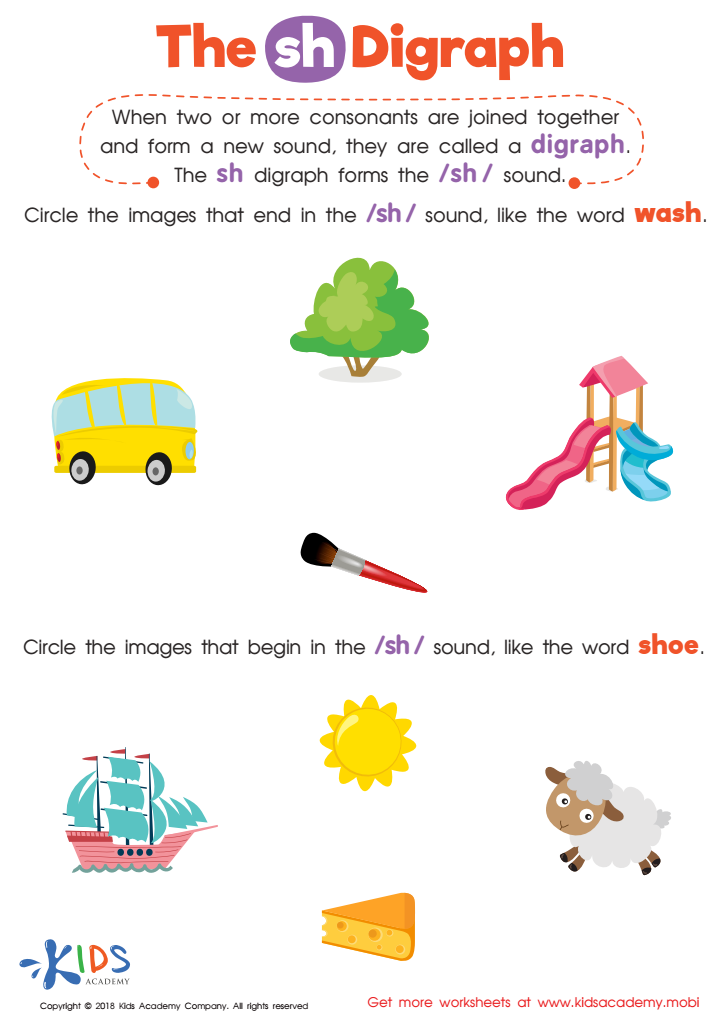

The SH Digraph Worksheet
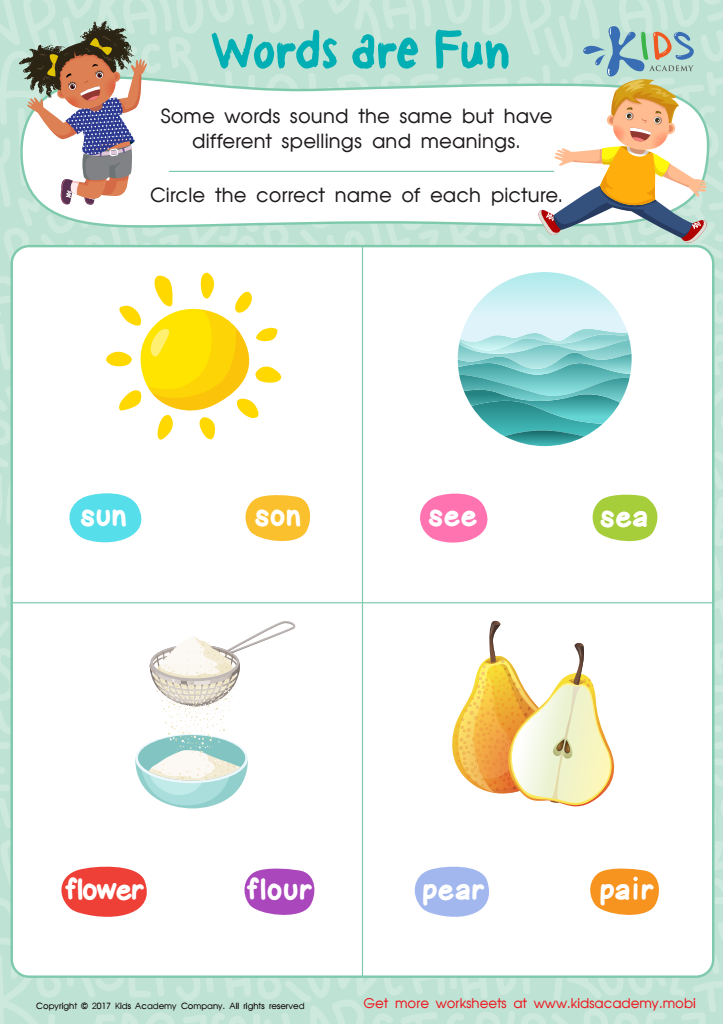

Words Are Fun Worksheet
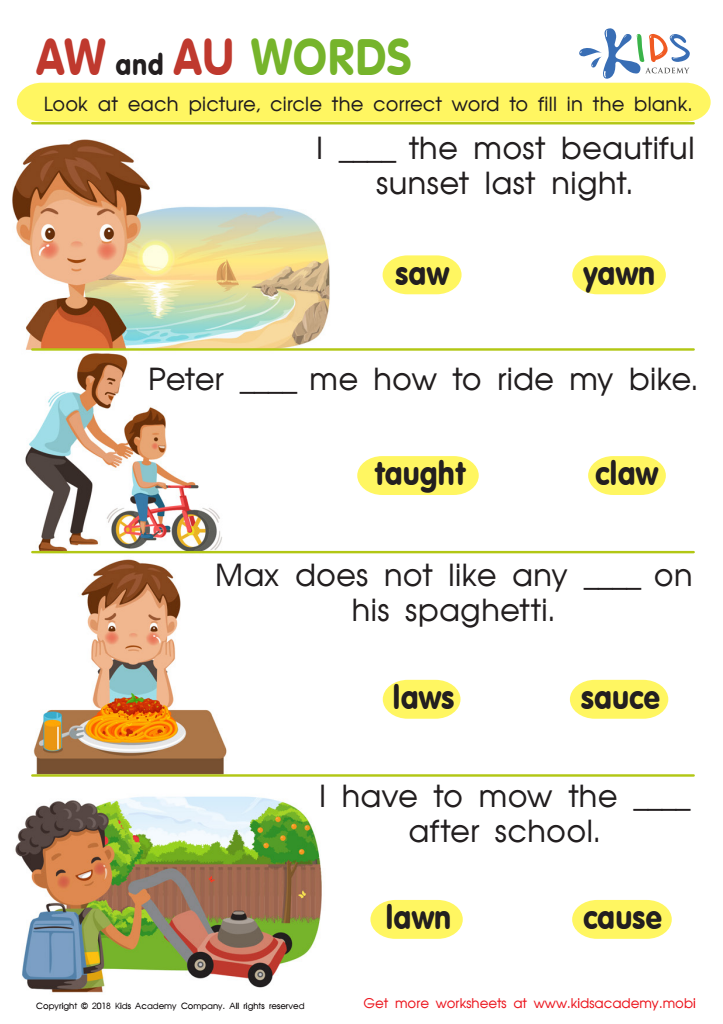

Reading: AW and AU Words Worksheet
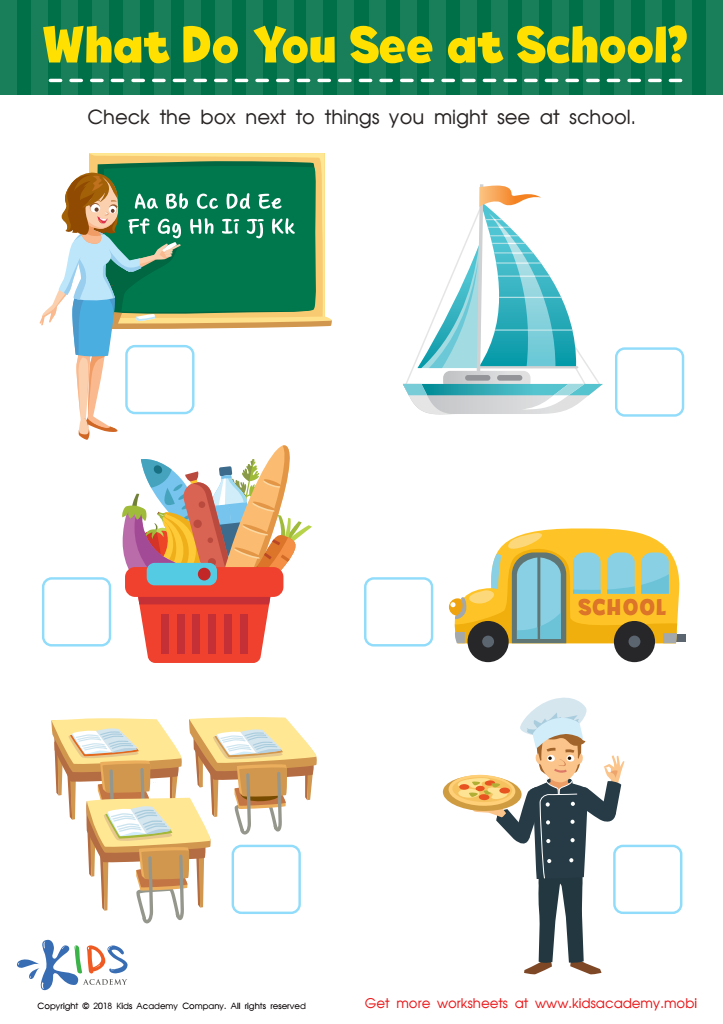

What Do you See at School? Worksheet
Spelling practice is crucial for children aged 5-9 because it lays the foundation for effective communication and overall academic success. During these formative years, children's brains are rapidly developing, making this an optimal time to introduce language skills. Learning to spell enhances their understanding of word patterns, phonetics, and grammar, all of which are essential for reading and writing.
For parents and teachers, emphasizing spelling practice supports cognitive development by improving memory, attention to detail, and problem-solving skills. Good spelling boosts a child's confidence in their abilities, encouraging a positive attitude towards school and learning. As students become more confident spellers, they are more likely to engage in writing activities, which further enhances their literacy.
Moreover, proficiency in spelling aids in comprehension, reducing the cognitive load during reading by enabling children to recognize words more quickly. Teachers can introduce spelling games, interactive activities, and consistent practice to make learning engaging and fun. These practices ensure that children are not just memorizing words but understanding their structures and uses.
In summary, spelling practice is a key component of early education that benefits linguistic development, cognitive skills, and self-esteem. Investing time in this foundational skill today sets the stage for a lifetime of effective communication and academic success.
 Assign to My Students
Assign to My Students






















